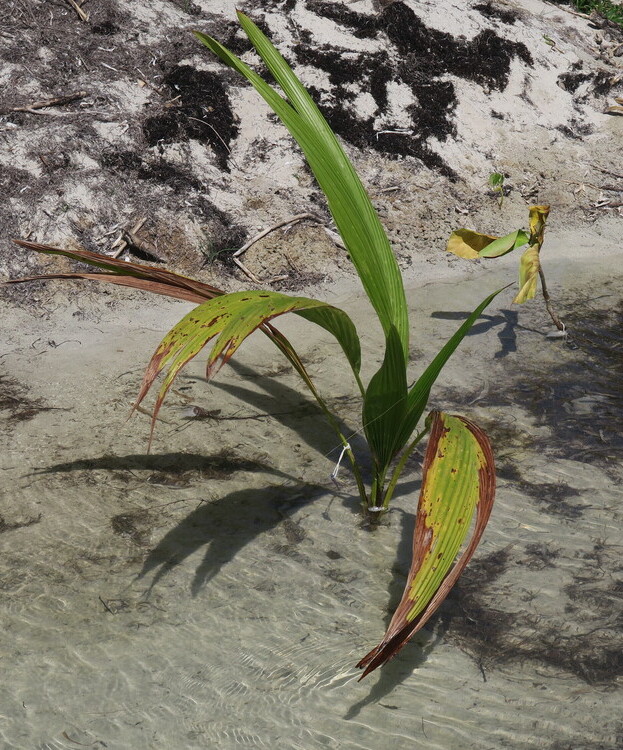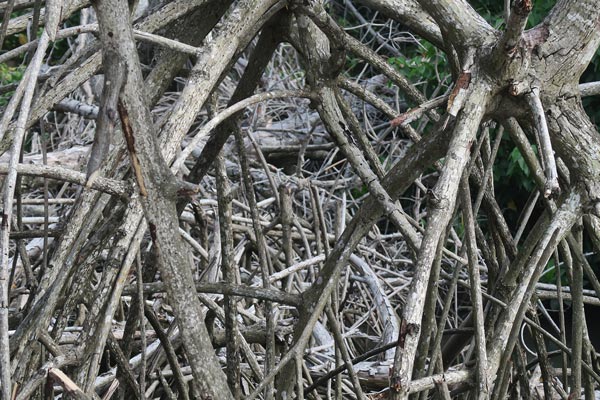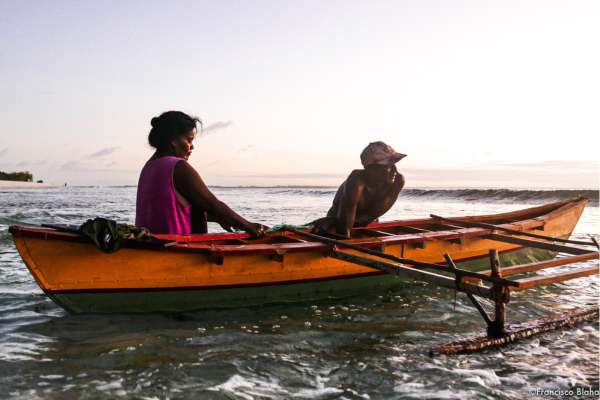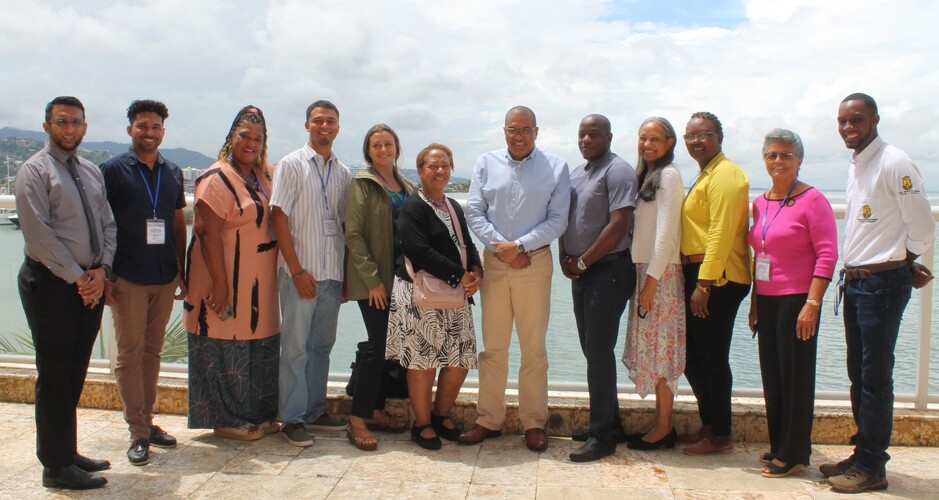Written by:

Sara Valero
Blue Economy Expert

Lucas Mira
Junior Associate
If you are new to the discussion on blue carbon, the first thing you need to know is that the term refers to coastal ecosystems including mangroves, seagrasses and tidal marshes which are critical ecosystems that remove carbon from the atmosphere and oceans, storing it in plants and sediment. For this and many other reasons, these ecosystems are critical to mitigating climate impacts, building resilience , and improving overall human well-being.
Mangroves, saltmarshes, and seagrasses are some of the most carbon-rich ecosystems on Earth and play a significant role for coastal ecosystem-based adaptation (EbA), however, they are also among the most threatened. Once they are degraded or destroyed, they have the potential to contribute to the climate change problem as the blue carbon they store is released into the atmosphere as carbon dioxide contributing to global climate change rather than combating it. As a means to illustrate this: mangrove forests store up to five times more carbon than most other tropical forests around the world – in total, around 33 billion tons of carbon dioxide (about three-quarters of the world’s emissions in 2019) are locked away in our planet’s blue-carbon sinks.

Luckily this trend is starting to change and there is increasing recognition of the linkages between the ocean and climate change and the co-benefits that ecosystem conservation, restoration and management brings in terms of both adaptation and mitigation. Synergies between climate adaptation and mitigation strategies within NDCs provide an optimal approach for blue carbon ecosystem management. In addition, with the inclusion of carbon sequestration as an economic asset, given the opportunities to participate in carbon markets, well-rounded management planning for marine resources can benefit both a country’s GHG emissions profile and its economic framework for growth.
Inclusion of coastal ecosystems in NDCs also helps unlock external financial support and international climate finance given the opportunities for maximizing co-benefits and the “no-regret” nature of these interventions, as they would provide economic, social and environmental benefits regardless. Another key aspect regarding the inclusion of blue carbon in NDCs is the opportunity to include communities and community-based projects, as community based and locally led initiatives are acquiring an increased interest from the international community. People play a vital role in conservation and development efforts; thus, community-scale projects should be embedded within the larger framework of NDCs while ensuring that livelihoods or social justice are not compromised. According to a study published in 2022, working in partnership with communities is important for many reasons:
-
First, environmental justice requires that those most affected by climate change and most vulnerable to its impacts are central to responses to mitigate and adapt.
-
Second, blue carbon ecosystems are typically interlinked with human communities who are heavily dependent upon them, hence are usually best understood as socio-ecological (rather than only biological) systems.
-
Third, the knowledge that local communities have may be vital for effective conservation and restoration activities and management models that are not consented to and supported by local people are likely to fail and to increase development inequalities.
Inspirational blue carbon projects demonstrate how coastal ecosystems can be conserved and restored for the benefits of nature and people. Consequently, to be successful, community-based blue carbon initiatives must involve local people, have transparent and accountable governance structures, integrate their work into national policies and practices, ensure that their livelihoods are not jeopardized by the project (for example by creating a voluntary carbon market that offers alternative livelihoods), and simplify accounting and verification methodologies to lower entry barriers .
This new understanding of the reality offers countries the opportunity to consider blue carbon-like nature-based solutions beyond what has been originally included in NDCs, including recognizing blue carbon as an opportunity to fill the current emissions gap and advance the global goal of keeping the temperature increase below 2oC, as well as an opportunity to support communities and locally led types of interventions that maximize economic, environmental and social benefits and impacts.

-
Blue Carbon Solutions (2019) Blue carbon NDC appendix: Integrating blue carbon in the nationally determined contributions under the Paris Agreement. Available at:
https://bluecsolutions.org/dev/wp-content/uploads/Blue-Carbon-NDC-Appendix.pdf.
-
Chmura, G.L. et al. (2017) Blue carbon: Increasing carbon sequestration in coastal ecosystems. United Nations Environment Programme and GRID-Arendal. Available at:
https://gridarendal-website-live.s3.amazonaws.com/production/documents/:s_document/83/original/BlueCarbon_screen.pdf?1483646492
-
De Stefano, M. et al. (2022) Evaluating the potential of seaweed farming for climate change mitigation: Insights from a multi-criteria assessment in Chile. Ambio, 51, pp. 238-251. doi: 10.1007/s13280-022-01723-1.
-
D. Herr and Landis, E. (2016) United Nations Environment Programme, Coastal blue carbon ecosystems: Opportunities for Nationally Determined Contributions. Policy brief methods for assessing carbon stocks and emissions factors in mangroves, tidal salt marshes, and seagrass meadows. Available at
https://wedocs.unep.org/bitstream/handle/20.500.11822/34030/CBE.pdf?sequence=1&isAllowed=y
-
O. Lopez (2021) Ocean Conservancy NDC Tracker. Available at:
https://oceanconservancy.org/wp-content/uploads/2021/04/NDC_Tracker_April-2021_update_final.pdf
-
S. Valero (2022) ITACA Solutions. How blue is carbon in the Caribbean? A regional diagnostic and assessment.
-
Thu Thuy, P. and Than Thuy, T. (2019), Incorporating blue carbon into Nationally Determined Contributions: Current status, opportunities and challenges of 13 Asia-Pacific countries, Info Brief No 274. Available online:
https://www.cifor.org/publications/pdf_files/infobrief/7554-infobrief.pdf
-
Verhulst, J. et al. (2021) The potential for blue carbon projects to contribute to biodiversity conservation: A review of current practices and knowledge gaps. Frontiers in Climate, 3, p. 710546. doi: 10.3389/fclim.2021.710546.
References
Related posts
sign up our newsletter
ITACA Solutions is a technical services provider focused on implementing climate adaptation in coastal areas in the Caribbean. Sign up to our mailing list to receive our newsletter with updates about our work, publications, activities and events.






